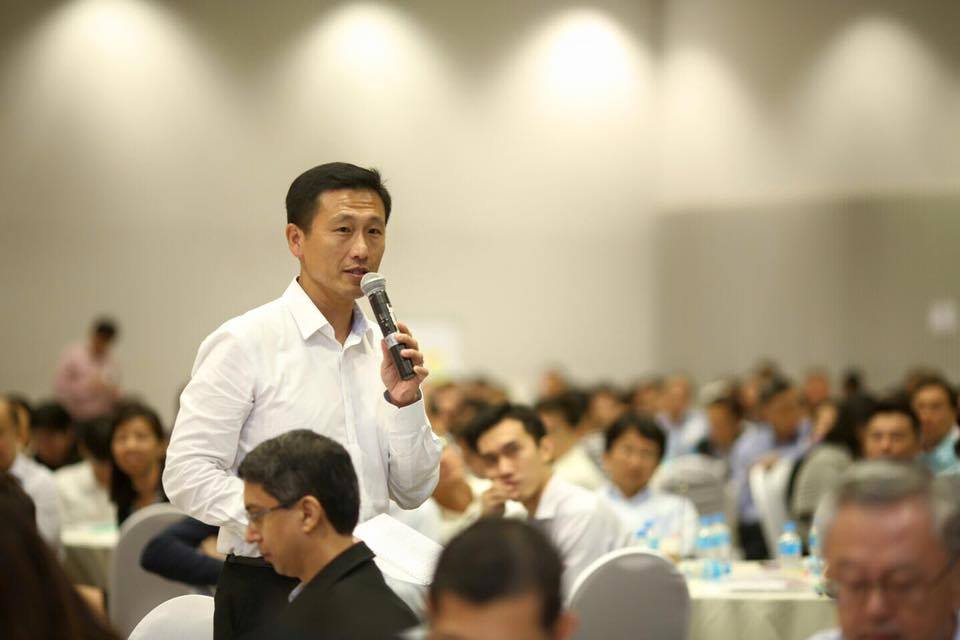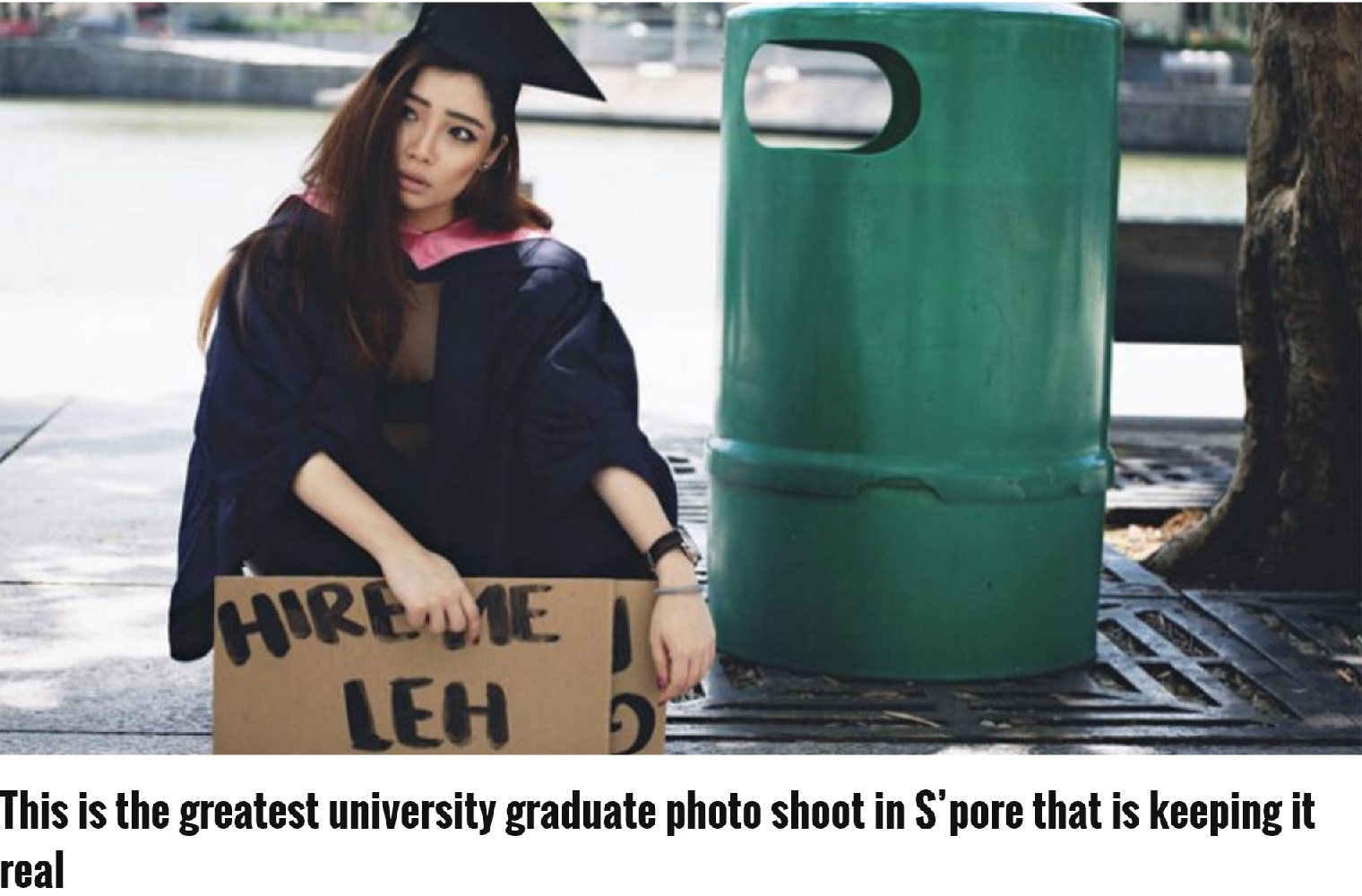It's convocation ceremony time in our local universities and all the freshly-minted graduates probably think that the world is their oyster just because.
Some are planning their graduation trips, or perhaps, taking a gap year to find themselves before starting work.
But these are the realities on the ground:
1. Our economy only grew by 1.8 percent in the first quarter of 2016.
2. Ministry of Manpower (MOM) announced that the number of job vacancies in Singapore declined in 2015.
3. MOM noted that only four in 10 of job vacancies, or 43 percent, were for professionals, managers, executives and technicians (PMETs).
So many of our fresh graduates may end up like this:
Anyway, here are some timely advice from Acting Education Minister (Higher Education and Skills) Ong Ye Kung:
Speech 1: Address at the Straits Times Education Forum at Singapore Management University, June 25.
Lesson 1: "We should not chase rankings blindly"
- "Research accounts for a significant part of the scoring in the international rankings of universities. Having good rankings is not a bad thing for students at all, as they will be better regarded when seeking employment in the marketplace after graduation...The rises in the rankings of NUS, NTU and SMU are very significant achievements that we can be very proud of."
- "But we must also recognise that rankings, done by private organisations, are based on criteria that may not entirely align with the public missions of our IHLs and universities. Rankings provide a gauge of the quality of our institutions, but they do not do justice to the intangible and important role that IHLs play in shaping our society and nurturing Singaporeans. We should not chase rankings blindly, in the same way that we tell students and parents not to chase grades blindly."
What this means: Having your universities ranked top in Asia do not necessarily mean that Singaporeans are the smartest people in Asia. Such rankings are done by private organisations and based on the universities' research capabilities.
Lesson 2: Practical and Soft skills matter
- "From time to time, we, including DPM Tharman, meet these industry captains to hear their views. They are telling us, 'Singapore graduates know a lot of stuff, but those can be learnt on the job. What’s more important are the practical and soft skills that can help them excel at the workplace.'"
- "IHLs (Institute of Higher Learning) must help students to build up their essential soft skills, such as interpersonal skills, working in teams and across cultures, the ability to communicate well, negotiate effectively, and be resourceful and enterprising. These are skills that industry leaders told us are lacking in Singapore students, as I have mentioned earlier."
What this means: Captains of the industry have the impression that Singaporean students are a bunch of nerds who may be too awkward in team settings and perhaps too sheltered to survive in the real workforce.
Speech 2: Speech at The Skillsfuture Study Awards Ceremony, July 9.
Lesson 3: Lifelong commitment to a trade, craft or profession
- It "starts with discovering and committing yourself to a trade, craft or profession that you want to excel in, which will over time define who you are...What follows is a lifelong dedication to finding meaning in your work, in yourself. It is perseverance, dedication, curiosity and courage."
- "Simply put, we must be on a constant quest for excellence, to do what we can do even better. If we encounter a setback, which all of us will, we do not give up, and not let one setback define us."
What this means: Singaporeans, who assume that they have many job options, may not apply themselves well and dedicate themselves to their trade, craft or profession.
Lesson 4: Don't let academic results decide your future
- "Never let one set of less than stellar academic results decide your future. It has to be so because it takes one year to learn something, but a whole life to master something. It is that mastery that decides your station in life, and your recognition at work and in society."
- "Our system is not designed with dead ends – far from it – there are multiple alternate paths to take, and we have a lifetime to walk them."
- "A JC student who did not get admitted to university? It is a setback but there is no dead end. Opt for polytechnic for a hands-on education. After graduation, you will be well sought after in the industry, and with good results, you can still go to university. A polytechnic student who did not succeed in getting to university? Work first, or enrol in an Earn and Learn Programme, to gain valuable experience and pick up practical skills on the job...There are no dead ends, and as long as you walk purposefully, not aimless meandering, you’d live a full life."
What this means: Singaporeans should not assume that they have made it in life because they are university graduates.
They have to remember that their Singaporean peers without university degrees, may well eat their lunch if they are too choosy with their job and salary expectations.
Top photo via Ong Ye Kung Facebook.
If you like what you read, follow us on Facebook and Twitter to get the latest updates.
If you like what you read, follow us on Facebook, Instagram, Twitter and Telegram to get the latest updates.

